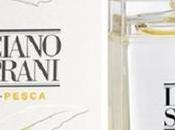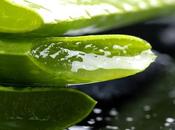Migros, si sa, per noi svizzeri è un vero punto di riferimento per un gran numero di acquisti di diversa natura, a partire dagli alimenti quotidiani, passando per i prodotti per il fai da te, le piante, la ristorazione, la benzina e i viaggi: ma la cooperativa svizzera più famosa è pure attenta all’ambiente e alla salute umana.
Così, al di là del non offrire alcoolici e tabacchi (anche se nell’acquisita Globus, all’onor del vero, questi prodotti sono disponibili), Migros rende anche la sua moda sostenibile, a favore di un uso rispettoso e razionale delle risorse disponibili nell’ambiente, anche a vantaggio delle generazioni future.
Migros is for Swiss the most important store where you can buy a lot of products, as everything you need to eat every day, or the do it, plants, tea room, petrol or travels: but the most famous Swiss cooperative is well known also for the environmental and human policies.
In fact, Migros doesn’t sell alcoholic or cigarettes (but you have to consider that the controlled Globus does sell them), but it also chooses a sustainable fashion, using the environmental resources in a respectful and rational way, also for the future generations.

La moda sostenibile di Migros è infatti Made in India, e la sua produzione principale avviene a Tirupur, per mano della Eastman Exports, che da più di un ventennio si occupa di assicurare abbigliamento sostenibile per Generazione M, il cui obiettivo è proporre entro il 2017 solo abbigliamento da tessile tracciato ed ecologico.
A titolo di esempio, Migros vuole dire addio definitivamente a PVC, ammorbidenti particolari e soglie bassissime per eventuali prodotti chimici (il cui impiego dovrà comunque essere molto limitato):la politica dell’azienda svizzera è sempre stata molto lungimirante, e ben al di là degli standard condivisi.
Migros chooses the sustainable fashion Made in India, and the production is made mainly in the city of Tirupur, where the Eastman Exports has its facilities. Since twenty years, this company produces sustainable fashion for the M Generation, and its goal is to sell dresses made from ecological and traceable textiles.
We take for instance the policy of Migros about PVC, chemical products or softeners: the company decided to strike off them in the production or at least to reduce dramatically the use of them, being in that a very future oriented company, more than the common standards.
Così, Migros ha sempre sostenuto direttive ecologiche contro l’uso di prodotti chimici inquinanti, come del resto, le direttive BSCI per un lavoro attento alla salute e ai diritti dei lavoratori nonché per la tracciabilità estesa delle materie prime.
Migros ha sostenuto anche la creazione di una scuola a favore dei bambini, per contrastare in modo attivo il lavoro minorile, assicurando ai bambini il diritto allo studio, per crearsi una vita migliore: e in questo senso, ben 1400 bambini, grazie a questo approccio del gigante svizzero della distribuzione, possono avere un futuro migliore.
Migros in fact sustains ecological policies against the use of chemical and pollutants products, as the BSCI policy adequately adapted to assure rights and health to the workers, but also using traceable of the commodities.
Migros sustained also the opening of a school for the children, to fight against the child labour, assuring them the right to study: at this moment, 1400 children, thanks to the policy of the Swiss company, could have a future.






